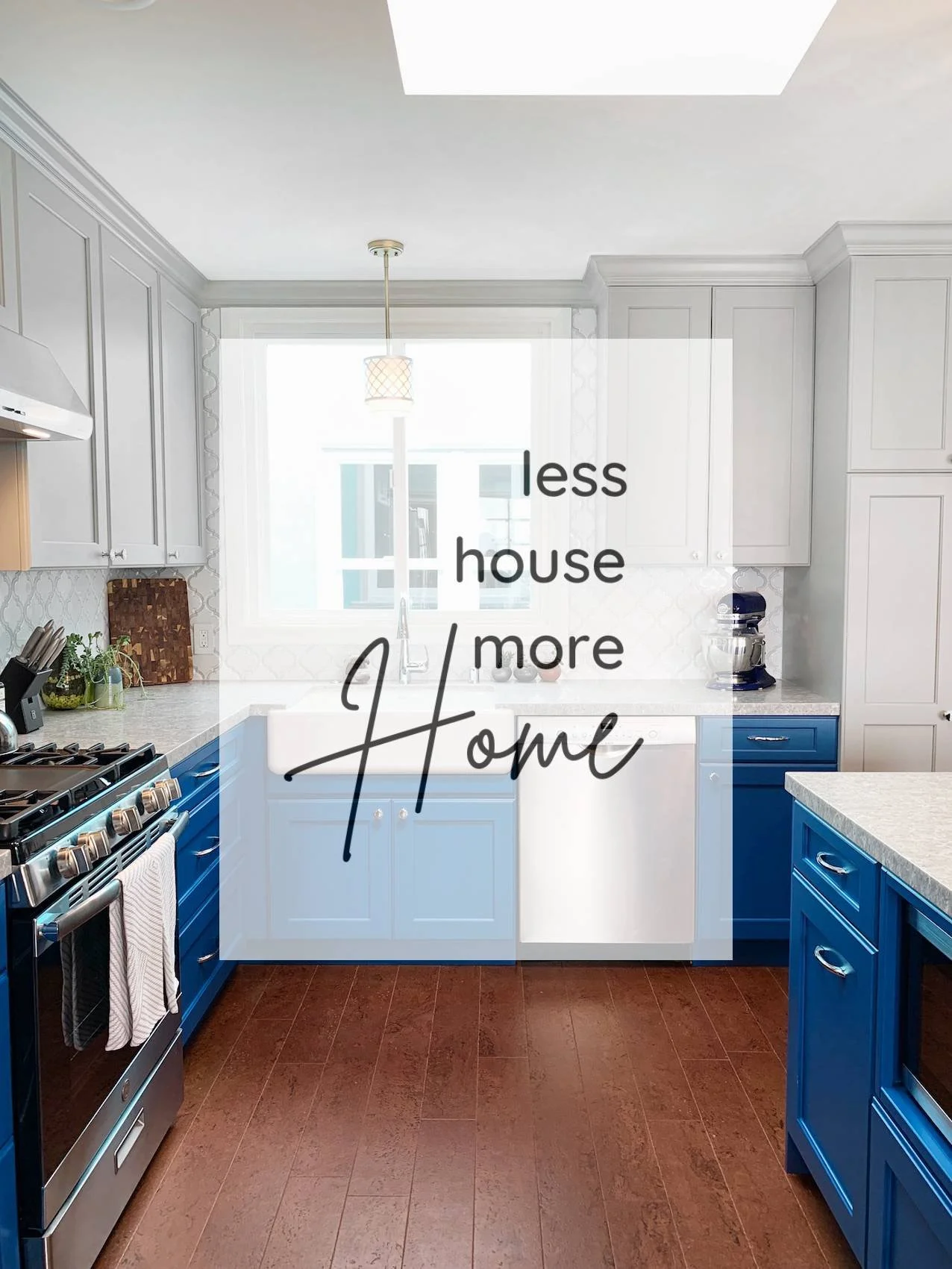The freedom of living less
Miss Alice Designs
"There is freedom, joy, and improved quality of life by living in smaller quality spaces"
Small is beautiful. I’ve had a lot of people including strangers tell me that my designs look like real homes that feel cozy and lived in which I take as a major compliment. In today’s world, you see large mansions all over the internet and social media. The trend right now is all about showcasing celebrity homes in most of the major design magazines. The problem is that a majority of people (especially millennials and Gen Z) don’t resonate with celebrity mansions. Most people want to see real homes being renovated and lived in by real people for real living. In a house, more square footage doesn’t necessarily translate into an elevated quality of life.
Smaller homes (I define smaller homes between 900-1,500 square feet) are much more interesting to design, require creative problem-solving skills, are more cozy, charming, and inviting. People are moving away from larger homes regardless of what all the design magazines show. Baby boomers are downsizing to smaller homes for easier maintenance and millennials focused on their careers are looking to purchase their starter home. Smaller homes allow people to invest more of their money into experiences so they have the freedom to live a better, more fulfilled lifestyle.
Below are 6 reasons why smaller homes are more attractive, appealing, and have bigger charm, improving the quality of your life.
1. Cozy
When you think about a home that feels warm and cozy, a large 5000 sq ft home probably doesn’t come to mind. That’s because when we’re in a smaller space, we naturally gravitate toward one another. Smaller homes can help families gather together and create a sense of intimacy and connection with each other. Smaller spaces are more attractive because it feels safe, inviting, and easier to connect.
2. Charming
Smaller homes are more charming and personable. Larger homes can feel cold with open cavernous spaces that you might get lost in. Smaller homes like a craftsman bungalow provide a charming appeal that large mansions don’t. You can customize a smaller home as much if not more than a larger home. Smaller spaces require more creative problem-solving skills due to a smaller footprint and can have awkward shapes that require out-of-the-box thinking. For designers, it’s a fun design challenge to make everything work together and look nice despite having smaller spaces.
3. Smaller Environmental Impact
Living in smaller homes can help you reduce your carbon footprint dramatically and consume less energy to heat or air condition your home. As energy costs rise, smaller homes are becoming more attractive and more desirable for buyers and far more marketable than the larger homes that contain extra rooms (or “dead rooms”) that may never be used. Smaller homes require you to think about the physical items you hold onto in your surrounding space and help you start living intentionally with less stuff.
4. Less Maintenance
Having a smaller home means less physical “stuff” and less “clutter” creating more space in your life for what’s meant for you. You spend less time cleaning and maintaining your home, and more time doing the things you love. My clients don’t live in huge mansions, have a regular weekly cleaning service (yes, even in smaller homes, they do hire a weekly cleaning service), yet love their homes. They have more time to do the things they truly enjoy. By having less, you gain clarity, focus, and more time to live a fulfilled happier life.
5. Mindful and Intentional
With smaller homes, you become more mindful of your living space and more intentional about your daily activities. You get to choose which aspects of your life you want to focus on and what you want to simplify. With less space, we are required to be intentional and mindful about what we bring into our homes from the furniture we purchase to the accessories we acquire and how they are made and sourced. Quality becomes a priority rather than quantity as quality craftsmanship maintains value and durability far better over time versus something that only lasts a few years.
6. Freedom and Flexibility
Many people today, especially millennials, are opting for smaller homes to free up time for experiences like traveling, adventure, spiritual retreats, educational workshops, self-development, flying lessons, and more. Living in smaller homes and downsizing on possessions offers more freedom and flexibility. Smaller homes are attractive to many millennials and baby boomers looking to free up more funds and time. More time leads to lower stress, increased creativity, and a better lifestyle. More freedom leads you to pursue what’s truly important to you, take advantage of opportunities, and experience the amazing adventure life has to offer.
“The idea that having less space and stuff can create room in our lives for more experiences is an appealing one.” - BBC Culture
Since the pandemic, people’s values and principles have changed. It’s about living a simple and fulfilling life that represents who you are based on memorable experiences that you will remember for years to come. It’s about living a quality life and not one of possessions. Having a bigger house will not make you any happier if you don’t already know how to live well and appreciate what you have. It’s really about less house, (less square footage), and more home, the feeling of comfort, joy, authenticity, and connection to your soul. Small is beautiful.
If you need a designer’s help and touch to transform your space, please schedule a 30-minute discovery call here.

